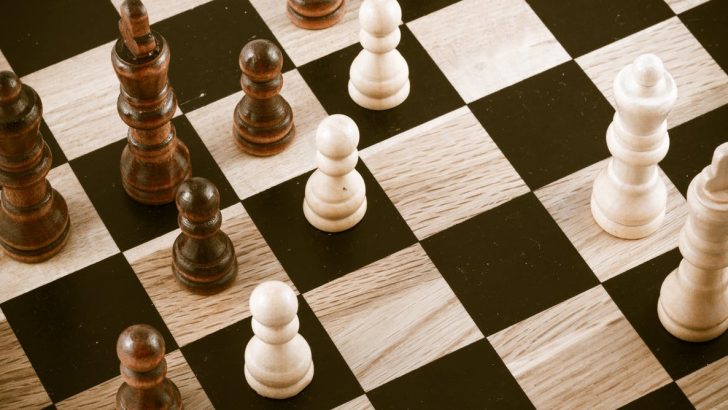Science of Life
You might think that social class divisions are fast disappearing in our modern world as we all increasingly enjoy affording things that used to be luxuries, e.g. motor cars, foreign holidays, university education, etc. but a recent review by Antony Manstead (British Journal of Social Psychology, Vol. 57, Issue 2, 2018) shows that class remains strongly etched into our psychology. This review is discussed by Alex Fradera in Research Digest (The British Psychological Society, May 15, 2018).
The three main traditional social classes are working class, middle class and upper-class, but it is more common nowadays to reference socio-economic status, based on income and education, rather than the three traditional classes. However, the concepts are overlapping and I will use the traditional class categories in this article because they are more familiar and easily understood.
The working class is the lowest paid of the three classes. Wages are paid by the hour and members of the working class typically work in ‘blue-collar’ jobs such as manufacturing, retail sales and food service. These jobs usually require manual labour and have low educational requirements.
The middle-class, as the term implies, occupies the middle position between the working class and the upper-class. It includes professional and business people, bureaucrats, some farmers and some high-skilled workers, sharing common social characteristics and values. Middle class jobs are, at least, reasonably well paid and call for significant educational qualifications.
The upper-class holds the highest social status and its members are typically ‘well-born’, rich, powerful and politically influential.
Publican
As to my social class, I would like to report that I am the Duke of Luxembourg, son of Lord and Lady Luxembourg, but I cannot. I am the son of a New Ross publican and his wife. I am middle class – as Conor Cruise O’Brien replied in an exchange with Prof. John A. Murphy of UCC, who had claimed Cruise O’Brien was enunciating middle-class ideas: “If a professor of the National University of Ireland is not middle-class, I must confess that I do not understand the meaning of the term middle-class.”
We are each conscious of our social class. Fradera reports that it is as important to us as, for example, our gender or ethnicity, and we display outward signs that allow others to easily detect our class. Some of the more obvious class markers are clothing (well-cut and more expensive or casual and cheaper); grammar, diction and accent; cultural and leisure pursuits (opera, classical music, bridge, tennis, country and western music, soccer, bingo, and so on).
More subtle behaviour also gives class away. Picture a group of working class men having a social chat. It is likely there will be lots of laughter (much of it probably arising out of ‘slagging’), lots of eye contact and head-nods. This behaviour is confirmed by laboratory studies. By contrast, middle and upper-class people are less verbal and more disengaged when interacting with others.
The psychological consequences of living in a social class are well established. In his book The Road to Wigan Pier, George Orwell, who lived in a coal-mining community for over a year, describes how the miners saw themselves as all being ‘in the same boat’, confronting the risks and forces of the world.
This bred little interpersonal competition to compete for prestigious career opportunities and no developed habits of postponement of gratification. The latter is probably born out of long experience of uncertainty in life when benefits and good fortune were suddenly snatched away – when something good comes along, better to enjoy it straight away lest it abruptly disappears.
On the other hand, members of the middle class feel they can control events and have confidence that good things will happen if they make the right choices. The middle and upper classes are motivated more by their internal state of quiet confidence and by personal goals.
They concentrate on how they should shape the world and not on how the world might push them around. In middle-class communities resources (e.g. wealth and social influence) can buffer you from catastrophes and you can develop habits of long-term planning and postponement of gratification.
The research described by Manstead reports that many attitudes of middle and upper-class people are less attractive than those of the working class. The middle/upper classes tend to be less empathic, more tolerant of greed and more likely to lie in negotiations than working-class people. In contrast, working-class people are more empathic and have higher levels of social engagement and interdependent relationships.
There is a common perception that working-class people are more intolerant and biased than middle/upper-class people, for example in their attitude towards immigrants. Opinion polls do identify unease amongst working-class people about immigration when, as is often the case, the immigrants compete with them for jobs. However, other studies also show that middle-class people are equally biased against immigrants when they perceive that the immigrants compete for middle-class jobs.
Cultural forces
Certain cultural forces in society tend to maintain social class divisions. For example, higher education is seen as a powerful engine of social mobility. However it is not as effective as it could be in this regard. People from lower social classes are quite likely to feel out of place in the university or to perceive that the opportunities available are poor and do not justify postponement of the gratification of getting a job at the end of second level education. The same forces also operate in many of the professions.
There is widespread agreement that we should strive for a more equal society and things are certainly moving in the direction of greater equality. But, a greater understanding of the psychological factors in play would help to move things along more smoothly.
However, the notion of an entirely classless society is a utopian ideal.
The biological range of capacity naturally present in the human race will always ensure that some people thrive better than others. Striving to attain utopia only leads to trouble. Encouraging and facilitating everyone to achieve their full personal potential is the only way to go.
William Reville is an Emeritus Professor of Biochemistry at UCC.


 William Reville
William Reville
